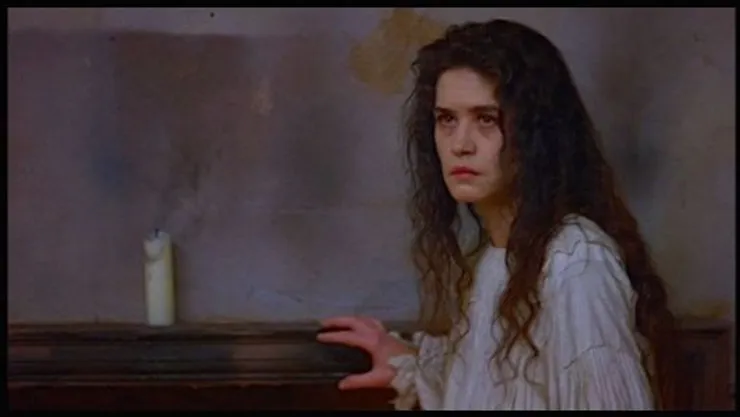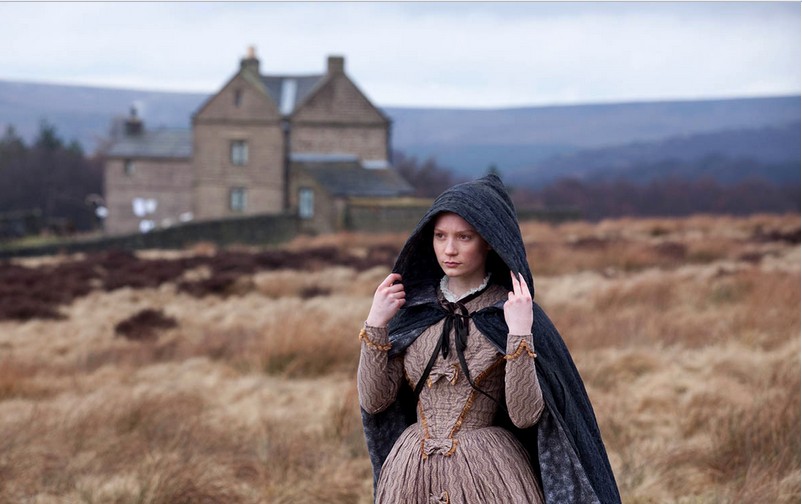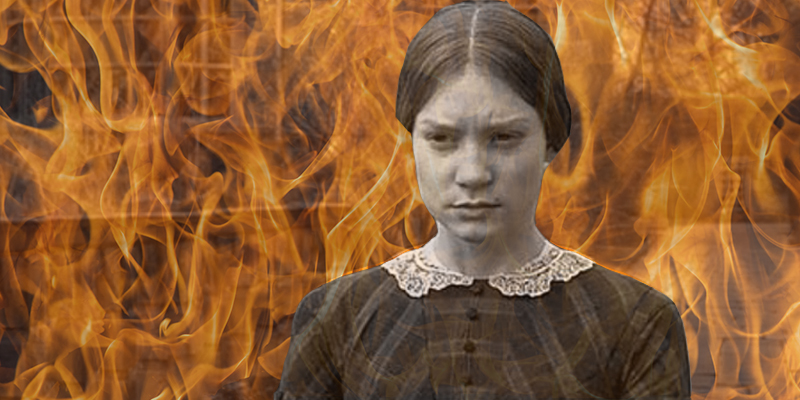By Katerina Taxiaropoulou,
“Do you think I am an automaton? A machine without feelings? Do you think, because I am poor, obscure, plain, and little, I am soulless and heartless? You think wrong—I have as much soul as you, —and full as much heart… it is my spirit that addresses your spirit; just as if both had passed through the grave, and we stood at God’s feet, equal, —as we are.”
-Charlotte Brontё, quote from Jane Eyre
On 19 October 1847, Charlotte Brontё publishes her novel Jane Eyre: An Autobiography under the masculine pen name “Currer Bell”. Jane Eyre is a Bildungsroman, as it follows the psychological and moral development of the eponymous heroine from childhood to adulthood. Born an orphan, Jane lives with her abusive aunt at Gateshead Hall, then is sent to bleak Lowood School and finally leaves to work as a governess at Thornfield Hall, where she falls in love with her aloof and sardonic employer, Edward Rochester. She accepts to marry him, but at the last minute, a man reveals to her that Rochester is already married to Bertha Mason, a madwoman whom he has locked up in the attic.
Jane Eyre could be placed among the works of the Female Gothic Tradition, as it explores the issue of gender and more specifically Victorian women’s position within marriage. To question the validity of the patriarchal institution of marriage, Brontё deploys the gothic device of the doppelganger, by drawing parallels between the two wives of the novel, Bertha Mason and Jane Eyre. The similarities between the two women’s inferior position in relation to Rochester is what hints at the possibility of Jane, the nearly second wife, having the same terrible fate as Bertha, the legitimate first wife. It is this scenario that constitutes the terror of the novel.
In the Victorian era, marriage manuals were largely popular. These were advice books that tried to “establish a social discourse of marriage as a practice ideally associated with affection and esteem on the part of the woman and love on the part of the man” (Diederich 3). As for remarriage, however, love was considered a selfish motive and it was acceptable “only as a matter of duty”, in case young children had lost their mother. The dominant ideology defining gender dynamics was that of “the separate spheres” (3), which held that men belonged to the public domain, while women were domestic creatures, born to run the household. Indeed, it was considered natural for the woman to be living in the limited domestic space, thus having fewer opportunities to grow spiritually. Yet, there is no suggestion that confinement and limitation naturally assumed abuse.
Rochester’s relationship with Bertha does not seem to follow any of the directions provided by these marriage manuals. First and foremost, it does not seem to involve love. When the truth about Bertha is revealed, Rochester compares Jane to his first wife, calling the latter “a demon”. Later, he exclaims she is “of mind, common, low, narrow”. Given the emphasis those guides put on love language, it appears that “Rochester’s description of Bertha has none of this affection” (Diederich 3). He agrees to marry Bertha thoughtlessly, only because of her wealth and looks. As he concludes: “I never loved, I never esteemed, I did not even know her”.
When he finally found out about Bertha’s unstable mental condition, he decided to enclose her in a room on the third floor of Thornfield Hall. Even though Bertha acts mentally unstable, Rochester’s decision still seems arbitrary. He never mentions consulting a doctor. Given that she already suffered from breakdowns, it makes sense that extreme confinement could only make her condition worse. As Elaine Showalter observes, “much of Bertha’s dehumanization… is the result of her confinement, not its cause. After ten years of imprisonment, Bertha has become a caged beast” (121). So, Bertha is first objectified as a check or an attraction to be attained, and, as soon as these qualities of hers fail to further satisfy her man and other less desirable appear, she is discarded as being mad, imprisoned, and driven thereafter to insanity.

Jane’s relationship with Rochester echoes that of Bertha. Rochester is not obliged to marry for a second time to fulfill his duty towards Adele, his suspected illegitimate child, since he can afford a governess. His impatient desire to marry Jane does not come from pure, genuine love either. After the revelation of the truth, Jane concludes that “only fitful passion” was driving him, not “real affection”. Rochester’s choice of words suggests that his feelings for Jane are not those of selfless love too. In an attempt to justify himself against the accusation of bigamy, he leads his accusers to his first wife’s room, and pointing at her ugliness, he confesses that he wanted Jane “just as a change after that fierce ragout”. This phrasing is definitely “a far cry from Rochester’s pronouncing Jane to be his equal”, as he seems to place her “‘just’ a little higher in value than the wife he regards a demon” (Diederich 7).
Rochester’s language along with his constant toying with Jane suggests that this second courtship is about possession as well. This time, “Rochester wants to possess Jane for his own happiness”, to satisfy his need for affection (5). It is within this atmosphere of selfish love that the reader can sense a strong craving for control. In an extreme case, Rochester says: “‘Once I have fairly seized you, to have and to hold, I’ll just—figuratively speaking —attach you to a chain like this’”. Here, Rochester’s language alludes to entrapment, foreshadowing his objectification of Jane. Within Brontë’s female gothic tale, “first and second wives can both be trapped and held prisoners by their husbands” (6). Jane will also be mistreated if she stays.
Under this light, the two women are read as “oppressed rather than opposed sisters” (Donaldson 75). In the end, Bertha cannot endure living in a cage any longer and commits suicide, “an act of symbolic violence against those who do not acknowledge her as an individual and a wife, but as an object” (Diederich 10). She sets Thornfield Hall on an all-consuming fire, which leaves Rochester blind.
Right before this event, Jane also escapes a life of objectification and confinement. Although she does not want to leave Rochester alone in his misery, she knows she does not wish to be his mistress. This is the time when her subconscious warns her. In her sleep, she goes back in time and visits Gateshead, the place in which her fear of confinement began, when, as a little child she was locked up in the room where her last remaining relative died. Now she experiences once more this overwhelming fear. The dream makes Jane alert to the possible realization of her fear of confinement if she stays to become Bertha’s doppelganger. Therefore, she decides to leave at dawn.

By this act, Jane refuses to become a doppelganger of Rochester’s first wife, rejecting marriage as an institution that confines and estranges a woman from who she is. Thus, she flees, taking her life into her own hands and becoming an active agent of her own destiny. She returns only when the conditions are drastically changed and there is the premise of equality within her marriage to Rochester. Jane’s full agency in the end is what makes this novel, a radical, gothic female tale.
References
- Gothic Doppelgangers and Discourse: Examining the Doubling Practice of (Re)marriage in Jane Eyre. ncgsjournal.com. Available here
- A Literature of Their Own: British Women Novelists from Bronte to Lessing. jstor. Available here
- The Miranda Complex: Colonialism and the Question of Feminist Reading. jstor. Available here




